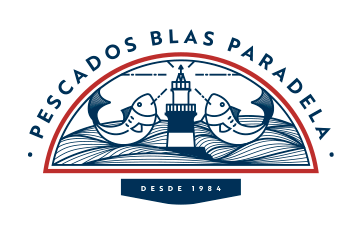Seasonal Fish
Seasonal fishes can be caught only at specific months during the year to respect their biological cycle when there is a larger amount of specimens and their flesh has a greater quality.
Tuna
Thunnus obesus
The season for tuna fishing starts in April or May and lasts until June or July. Similarly to the rest of blue fishes, tuna is rich in omega 3 fatty acids and a large number of B-group vitamins that contribute to the regulation of the cardiovascular system and boost the creation of red cells. Tuna is bigger than albacore and its flesh is lighter.
Anchovy
Engraulis encrasicolus
The anchovy is a seasonal blue fish highly purchased and valued. It is a very healthy appetising and not expensive fish that can be available, depending on the year, between March and June. It is caught at the Cantabrian Coast, from Galicia to the French Basque Country.
Albacore
Thunnus alalunga
At first sight, we can identify the albacore thanks to its long and uniform dorsal fin which covers almost all the central area. This fish is usually smaller than tuna, its flesh being lighter in colour. It is very valuable to prepare high-quality canned fish. The albacore is equally highly valued in cuisine due to its taste and texture. The hand fishing process, caught one by one, makes albacores a delicacy.
Mackerel
Scomber scombrus
The mackerel from the Atlantic Ocean is a lengthened and round fish with big eyes and a pointed muzzle. It is easily recognisable due to its greenish blue colour at its back striped with shaded lines and a darker colour at the top of the head. The fishing takes place between February and May. This blue fish is a natural source of omega 3 fatty acids, proteins and vitamins.
Atlantic Horse Mackerel
Trachurus trachurus
Also known as horse mackerel, this fish is an open sea species which may approach the coast in summer. It is a voracious fish that feeds on other fishes, crustaceans and small squid. The plentiful catches are obtained from June to October. The horse mackerel is an oily fish, a natural source of high biological value proteins and vitamins, one of these being the fat-soluble D vitamin that regulates the calcium levels in the blood and boosts the absorption of calcium as well as its setting on the bones.
Sardine
Sardina pilchardus
The sardine is a very popular and spread fish. It is caught using nets, preferably during the night. Although it is available almost all year, the best fishing months are July to November, when it is most abundant and its organoleptic properties, as well as its lipid content, are higher. The sardine can live up to ten years. The catch size varies from 4 in –the smallest, to 9 in –the maximum.






